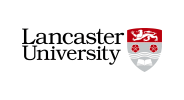© Pint of Science, 2025. All rights reserved.
Come and see Planet Earth in new ways! The event organised by researchers at Lancaster Environment Centre will unveil cutting-edge work exploring the varied environments that humans depend on. Join us for informative talks from local researchers, compete like animals in the wild, find out how to help scientists from your own garden, and perhaps even grab a drink whilst you're at it!
IMPORTANT notice to anyone attending 'Discover Earth' tonight: unfortunately the accessible lift to our first floor venue has broken. Access is only via a staircase of ~20 steps.
IMPORTANT notice to anyone attending 'Discover Earth' tonight: unfortunately the accessible lift to our first floor venue has broken. Access is only via a staircase of ~20 steps.
Ponds and puppets
Dr Heather Moorhouse
(Freshwater Watch Research Lead (Earthwatch))
Ponds in tropical Asian Mega-deltas are an important part of daily delta life and have been for centuries. They provide water and food security to millions. They are vast in number and occupy huge areas of land collectively. Ponds also remain sites of spirituality, folklore and cultural identity. Known as the “most controversial storyteller in science” (a friend), Heather will recount her tale “Ponds and puppets” featured in the “Speak-up for food security” storytelling final and detail the important wetlands that inspired this work, and why we should all care about our ponds, near and far.
Doing good science when air pollution is both real and socially constructed
Douglas Booker
(Co-founder & CEO: National Air Quality Testing Services (NAQTS) )
Air pollution is the world’s greatest environmental health risk resulting in millions of premature deaths per year. As well as being an evidently real problem, it is also something that is socially constructed: air pollution is defined by what we decide to measure, and where we take those measurements. These decisions ultimately determine what science is done, and what science remains undone. My research dispels air quality science as a politically neutral endeavour, and instead explores its social implications, and the challenges and opportunities of doing it in a more equitable way.
Real world impact for net zero: A journey of transformation, challenges and opportunities
Lorraine Ritchen-Stones
(Honorary Researcher, Lancaster University)
Lorraine takes you on a journey of understanding, through story-telling and real world research to explain the narratives around net zero and decarbonisation. She explains the rationale for supporting communities together with nature for biodiversity net gain, climate adaptation and mitigation. By sharing lived experience, Lorraine hopes you will be left appreciating the concept of personal power, gaining agency and spheres of influence in fighting climate change together.
Map data © OpenStreetMap contributors.
